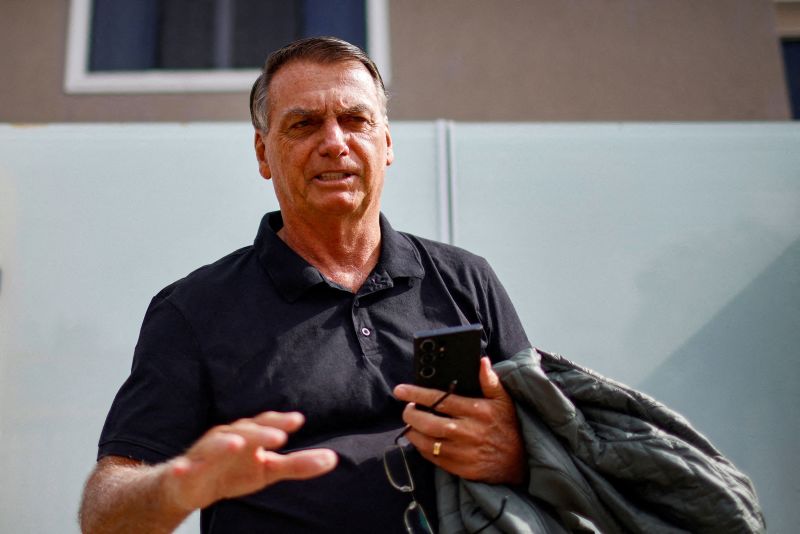Brazil’s political sphere was jolted recently with the news of former President Jair Bolsonaro’s indictment in relation to the alleged falsification of Covid-19 vaccination data. Bolsonaro, who served as president from January 2019 until his term ended, has been at the center of numerous controversies during and beyond his presidential term. However, this recent indictment has launched him into a complex legal battle that may have far-reaching implications for his political career and the legacy of his administration.
Before diving into the details of the indictment, it is essential to understand the context surrounding Bolsonaro’s handling of the Covid-19 pandemic. Throughout the pandemic, Bolsonaro showcased scepticism towards the severity of the virus and the importance of vaccinations. This scepticism culminated in a publically shared communication in which Panglossian figures regarding the percentage of the Brazilian population that was already vaccinated were allegedly inflated. This communications misstep sparked severe backlash within Brazil and globally, resulting in an official inquiry.
The subsequent investigation into the dissemination of possible false Covid-19 vaccination data was led by Brazil’s Federal Police. The probe aimed at two critical points; first, the exact numbers in the vaccination data Bolsonaro’s administration propagated, and second, whether this data had been intentionally altered to project a more positive image of the political leader’s handling of the health crisis.
The accusation leveled at the former president is serious. If Bolsonaro is found guilty of intentionally spreading false health data, he could face significant political and potentially legal sanctions. Under Brazilian law, the falsification of key public health data potentially constitutes a crime of falsification of medical or health documents. The penalties typically range from two to six years of imprisonment to a hefty fine. However, in this context, the potential ramifications not just for Bolsonaro but for Brazilian politics as a whole are substantial.
As the legal proceedings continue, the opposition in Brazil have seized on Bolsonaro’s indictment as proof of his alleged irresponsibility and mishandling of the Covid-19 crisis. Critics assert that Bolsonaro’s alleged distortion of crucial health data was a significant impairment to Brazil’s response to the pandemic, given that it may have created a false sense of security and hampered efforts to push for higher vaccination rates.
Meanwhile, Bolsonaro’s supporters have rejected the charges, describing them as politically motivated attacks aimed at discrediting the former president. They insist that any data discrepancies were due to unintentional errors rather than deliberate falsification.
This case is particularly notable, as it presents an opportunity for Brazil’s institutions to demonstrate their effectiveness in holding political leaders accountable for their actions. Legal experts perceive the indictment of Bolsonaro as a significant moment in Brazilian history, marking a crucial test for the country’s justice system and its ability to scrutinize potentially detrimental actions taken by individuals in positions of power.
However, the indictment against Bolsonaro is just the first phase of what promises to be a lengthy legal process. In an unusual twist for political cases, Bolsonaro’s legal situation will be closely watched not only in Brazil but also by international observers interested in seeing how Brazil handles such a delicate domestic issue.
Ultimately, the outcome of this case will have far-reaching consequences for Brazil’s political landscape. It will either reinforce commitment to transparency and accountability at the highest levels of power or indicate a failure to keep leaders in check. The case will also have significant implications for the political future of Bolsonaro, who has already announced his intention to run again in Brazil’s next presidential election. The legal proceedings’ impact on his chances to secure another term in office remains to be seen.




